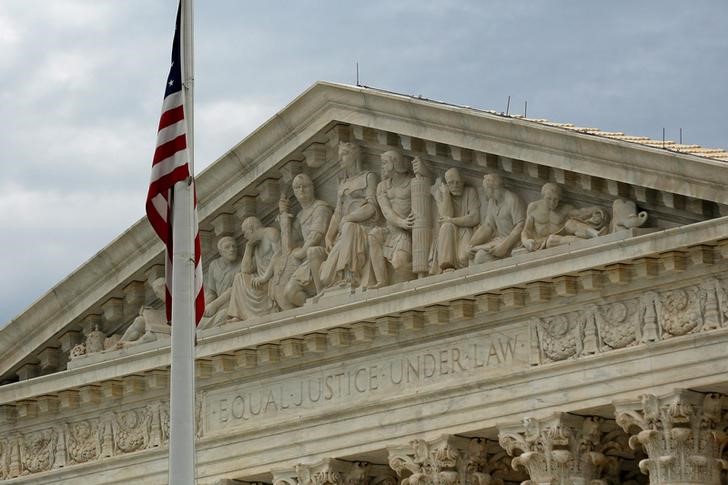By Sarah N. Lynch
WASHINGTON (Reuters) - The U.S. Supreme Court agreed on Monday to consider whether corporate insiders who blow the whistle on their employers are shielded from retaliation if they only report alleged misconduct internally rather than to the government's Securities and Exchange Commission.
The justices will hear Digital Realty Trust Inc's appeal of a lower court ruling in favor of Paul Somers, an executive fired by the San Francisco-based company after he complained internally about alleged misconduct by his supervisor but never reported the matter to the U.S. Securities and Exchange Commission.
The case hinges on the SEC's whistleblower protection rules required by the 2010 Dodd-Frank Wall Street reform law.
The court agreed to take up the case on the last day of a nine-month session. The court will hear the case during the next term that starts in October.
The SEC rules, adopted in 2011, prohibit corporate employers from retaliating in any way against whistleblowers who try to report allegations of securities law violations.
They also give the SEC the power to offer monetary awards to whistleblowers whose tips lead to successful enforcement actions.
Digital Realty Trust argues the anti-retaliation protections do not apply to people who fail to report their allegations to the SEC because the law defines a whistleblower as a person who reports possible securities violations to the SEC.
If the Supreme Court ultimately sides with the company, then it would force corporate whistleblowers to report wrongdoing to the SEC in order to be protected from retaliation.
Such a result could deter people from reporting misconduct internally first, said Jordan Thomas, a partner at Labaton Sucharow who represents SEC whistleblowers.
"I think both corporate whistleblowers and corporations should hope that the Supreme Court finds that internal reporting is sufficient to have the anti-retaliation protections because if not, sophisticated corporate whistleblowers will bypass internal reporting systems and report directly to the SEC," he said.
Digital Realty Trust, a real estate investment trust company, became entangled in the dispute over whistleblower protection after it fired Somers, its former vice president of portfolio management.
Somers had complained internally that his supervisor had eliminated some internal controls and hid major cost overruns on a project in Hong Kong.
After he was fired, he sued the company in November 2014, saying he was protected from retaliation as a whistleblower under the Dodd-Frank law.
The company tried unsuccessfully to quash his claim in the United States District Court for the Northern District of California.
While the case was on appeal before the 9th U.S. Circuit Court of Appeals, a divided 2nd U.S. Circuit Court of Appeals panel ruled in a similar case that people who only report misconduct internally are whistleblowers who merit protection from retaliation.
The 9th Circuit later affirmed the California finding, with the SEC also filing a friend of the court brief in the case and participating in oral arguments in support of Somers.

Both the 2nd and 9th Circuit opinions are at odds with the 5th U.S. Circuit Court of Appeals, which previously held that whistleblowers must report to the SEC in order to receive protective status.